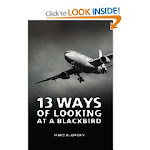Four months after the tragedy of Greenjet Flight 1220, Bill and June Montoya are very concerned about Sonia's deep depression. Armed with Bill's new-found mega-wealth at the passing of his mother, they decide to go all out and treat Sonia to a vacation in the beautiful Canadian Rockies. There is a scenic train called the Lofty Mountaineer that Bill has always wanted to go on. They arrive at Jill Petra's house where Sonia is staying with the two children of Violeta Blanco, one of the stewardesses who died in the crash. Sonia finally agrees to go on one condition, that her best friend, her sister Jill, go, too. Having anticipated that, the Montoyas had already gotten a ticket for Jill.
But they have also bought a ticket for Sonia's ex, her first love Chad Knowles. Having just lost his job as a financial advisor, Chad has time to go on vacation. He is due to get on the train a few stops after Bill and company do. Sonia has no idea that this "surprise" is in the works.
Since Sonia refuses to fly, the four adults and two kids pile into a rented Toyota and drive across country. Here we find more about Sonia and Jill - like why they're not easy to get along with - and we learn more of what we suspected about Bill and June; they never stop talking.
After they board the train, they settle in to have lunch in the dining car. Bill is rambling on about some old story when suddenly everything stops. Sonia realizes that the rain has frozen in time, along with everyone on it except for the chef working on the buffet line directly in front of her. He begins to talk to her and she realizes he is the Being. Sonia responds panicked and angry. After her experience on Flight 1220, she is no fan of the Being. [Her reconciliation with him will be in the final scene of the story] The chef/Being warns her that "the Devil" is on board and will kill everyone if they don't intervene. Sonia must trust that he will guide and deliver her through the crisis with one caveat, she must let her "true love die". As the train starts again and the chef remembers nothing, Sonia is totally perplexed. After lunch, they head back to their seats and arrive just as Chad is getting ready to take the seat in front of Sonia on the train. As she sees her first love, realizes this is what the Being meant by her true love, and that he must die, Sonia suffers a meltdown, trying to force her way out the door while the train is racing along. A clean-cut, well-dressed Hispanic man keeps her from jumping from the train and possibly hurting or killing herself. Ironically, the "hero" who keeps Sonia from jumping out is the Colombian terrorist, Miguel Smith, who has a plan of his own.
The Being begins to expose the group of hijackers even before they get a chance to carry out their plan. This creates tension but eventually forces the hand of one of Miguel's men. In the last car, there is a secret cache of gold bars that the train is hauling to a bank in Edmonton. The conductor, on his last assignment before retiring, has let them in on this secret in return for a hefty fee. He believes this would be a "victim-less" crime only he is not fully aware of the plans Miguel Smith has for the train.
As one of the passengers confronts one of Smith's men about why he is heavily armed, the narco-terrorist panics and fires off a shot to get the people around him back down. The sky window above him shatters. Thus the premature hijacking begins. There is one stop left before a long stretch through the mountains of Alberta and the train conductor will have to blow past it, tipping off the authorities that something odd may have happened.
Chad, Sonia, and the passengers plan to take back the train. The Being shows up at intervals to guide Sonia on. As the first attempt to take back the train turns into a scary bloodbath, Sonia starts to doubt whether the Being has a solid plan or not. Smith's plan becomes clearer as his men cart the gold bars to the front of the train. Adding to this back and forth battle that plays out over several hours, a news helicopter catches up with the train and catches the rebellion on a live video feed, drawing the rest of the world into the drama unfolding in rural Alberta.
Finally, Chad and Sonia hatch a plan where he is going to sneak onto the front trains after they draw some of the narco-terrorists toward the back cars. The passengers have to disconnect the passenger cars from the two engines in front. Sonia fights second thoughts about this as it falls into the timeline that the Being had mentioned; let your true love die. During the adventure, Chad and Sonia realize that they had been hiding how much they each loved one another. Chad shows her that the rumor that he'd cheated on her could not have been true. They make plans to get married as soon as the ordeal is over.
The storyline involves several narratives in which the characters are transformed by the impact of the frightening experience. Childless Jill Petra becomes the fierce defender of the two children. Chad, his confidence still rocked by his recent firing, regains his mojo. Bill and June stand up to the terrorists as well. The Being delivers on his promises.
In the end, the two engines are domed to crash, with Miguel Smith, the now-repentant conductor, Chad, and the surviving terrorists (all but two and Miguel are taken out by the passengers). The helicopter's intervention plays a key part of the action-packed ending. Though the Lofty Mountaineer is going straight down the rails, there are myriad twists and turns in this riveting drama.
What will happen to the villains and, most importantly, to Chad? For that you'll have to wait till I'm finished. For now, only the Being knows.
Hymn for Walpurgisnacht
22 hours ago






